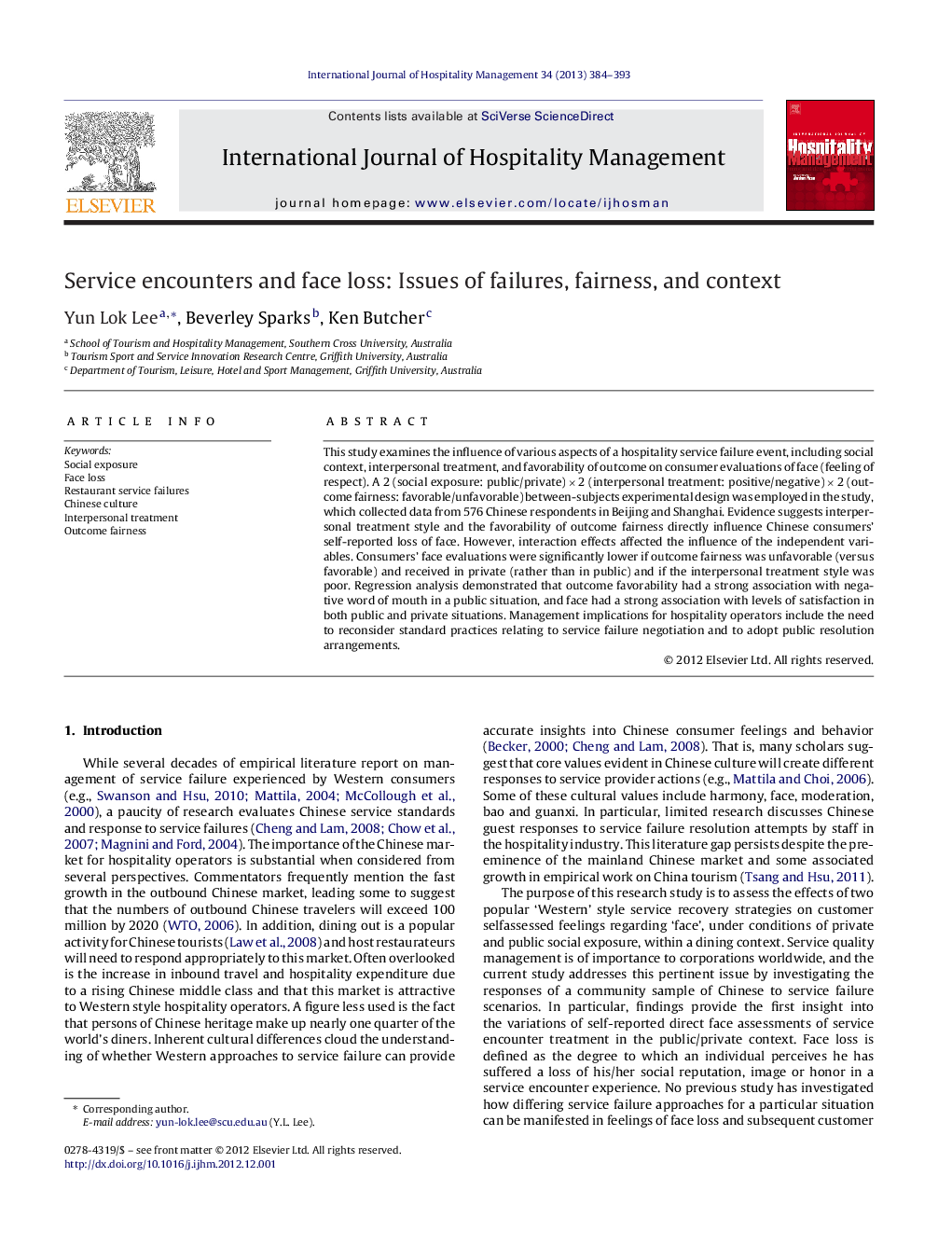| Article ID | Journal | Published Year | Pages | File Type |
|---|---|---|---|---|
| 1009570 | International Journal of Hospitality Management | 2013 | 10 Pages |
This study examines the influence of various aspects of a hospitality service failure event, including social context, interpersonal treatment, and favorability of outcome on consumer evaluations of face (feeling of respect). A 2 (social exposure: public/private) × 2 (interpersonal treatment: positive/negative) × 2 (outcome fairness: favorable/unfavorable) between-subjects experimental design was employed in the study, which collected data from 576 Chinese respondents in Beijing and Shanghai. Evidence suggests interpersonal treatment style and the favorability of outcome fairness directly influence Chinese consumers’ self-reported loss of face. However, interaction effects affected the influence of the independent variables. Consumers’ face evaluations were significantly lower if outcome fairness was unfavorable (versus favorable) and received in private (rather than in public) and if the interpersonal treatment style was poor. Regression analysis demonstrated that outcome favorability had a strong association with negative word of mouth in a public situation, and face had a strong association with levels of satisfaction in both public and private situations. Management implications for hospitality operators include the need to reconsider standard practices relating to service failure negotiation and to adopt public resolution arrangements.
